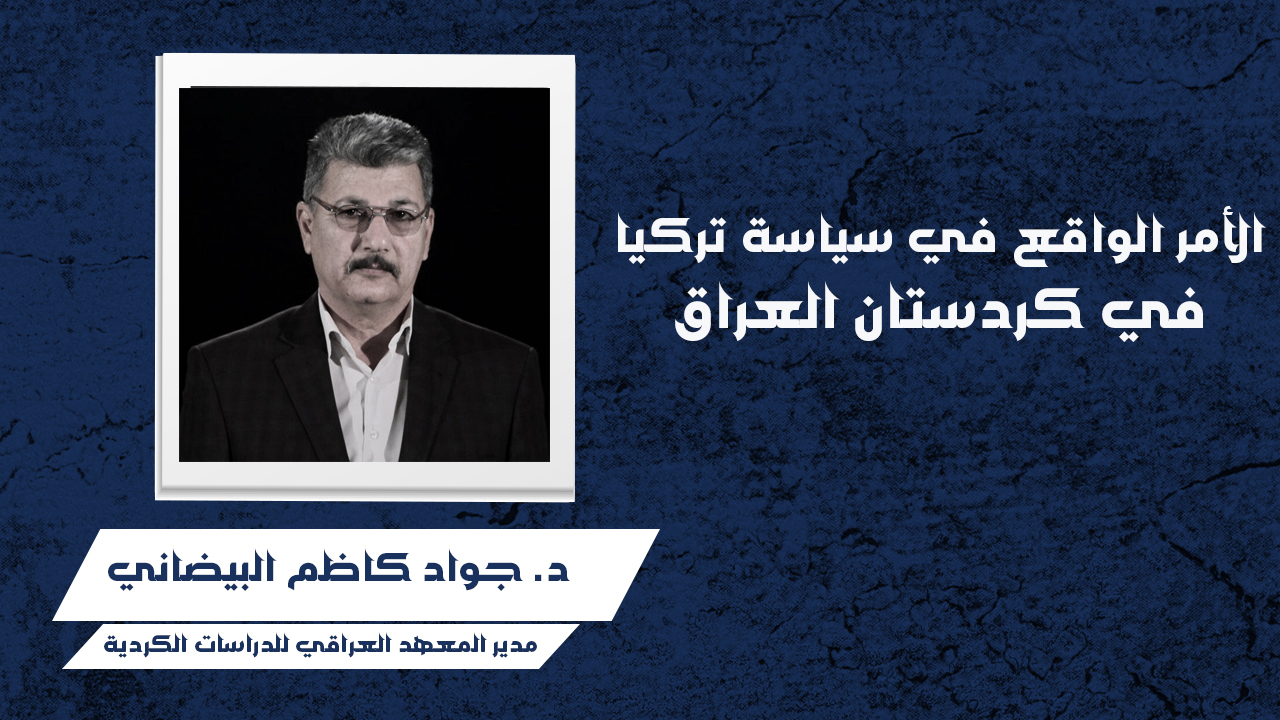Status quo policy of Turkey in Iraqi Kurdistan

Dr.. Jawad Kazem Al-Baidani - Director of the Iraqi Institute for Kurdish Studies
It is no secret to anyone that the Turks invoke arguments that they see as a threat to their national security, and Erdogan often addressed in his speeches the security threats that emanate from Iraq, and undermine the security and stability of Ankara, according to his saying, so does this claim apply with the reality imposed by Turkey in Iraq?
It is known that the direct Turkish intervention in Iraq dates back to 2015, when Turkey claimed at the time that these forces exist to train the Peshmerga forces. But according to the Iraqi constitution, the Peshmerga forces are part of the Iraqi defense system, so no country has the right to interfere in the security issue except through the defensive system Central. Since Turkey interfered without the knowledge of this system, its presence on the ground is tantamount to an occupying power. Accordingly, Iraq considered the presence of Turkish forces on its soil as a blatant attack on Iraq's sovereignty and national security.
Despite the mass protests and international rejection, Turkey continued to play this role. On the night of Sunday 14 to Monday 15 June 2020 AD, the Turkish Ministry of Defense announced the start of a military operation Claw-Tiger and then began air strikes on bases that it said belonged to the Kurdistan Workers Party in northern Iraq. .
Observers said that these operations are unprecedented in their ferocity, as if the sky was filled with drones, and the picture became clear on Friday, July 26, when the Turkish army began its violent ground offensive.
Social media pages began to show the nature of this attack and its negative effects, as there are many civilian casualties, destroyed homes and public facilities that were heavily bombed by Turkish drones.
Were these civilian lives the goal of Turkey in these operations? What is the position of the Kurdistan Regional Government on these developments? There is a question that arises: What are the motives of Turkey, which is preoccupied with the Syrian and Libyan fronts, to open a third front?
The new Turkish strategy carries new challenges in a region of an influence struggle between two powers that are the largest in the world in terms of military arsenal, and it seems that Turkey is trying to influence and impose a fait accompli and exploit a party (temporarily) in the equation of the conflict.
It seems that it has succeeded in Iraq, taking advantage of the ideological and national incompatibility in the social structure of this country, claiming of chasing away the PKK, realizing in that its strategic goal of controlling what it lost in 1918.
What has increased its ambition is the attempt by the two opposites, Russia and the United States, to win Turkey at the height of that conflict stage. Russia is trying to enter Idlib with the least losses and impose the stability it deems appropriate for Syria, and the United States is trying to control the oil triangle in Syria and prevent the Syrian regime from using it in its strategy, known as (Caesar), this pressure can only be achieved through Turkey. Perhaps, this conflict was the actual possibility of Turkey's domination of the Kurdistan region of Iraq, especially since the language of competition between the conflicting forces in this region is the engine of the contradictory relationship in it. Erbil has good relations with Ankara, and on the other hand, its relations with Baghdad are very tense, so it’s the only economic way to the world and it is not possible to wage a conflict with it in the critical economic circumstance it is going through.
These factors contributed to Turkey's military moves and helped it impose a fait accompli policy.
( A )
ANHA













